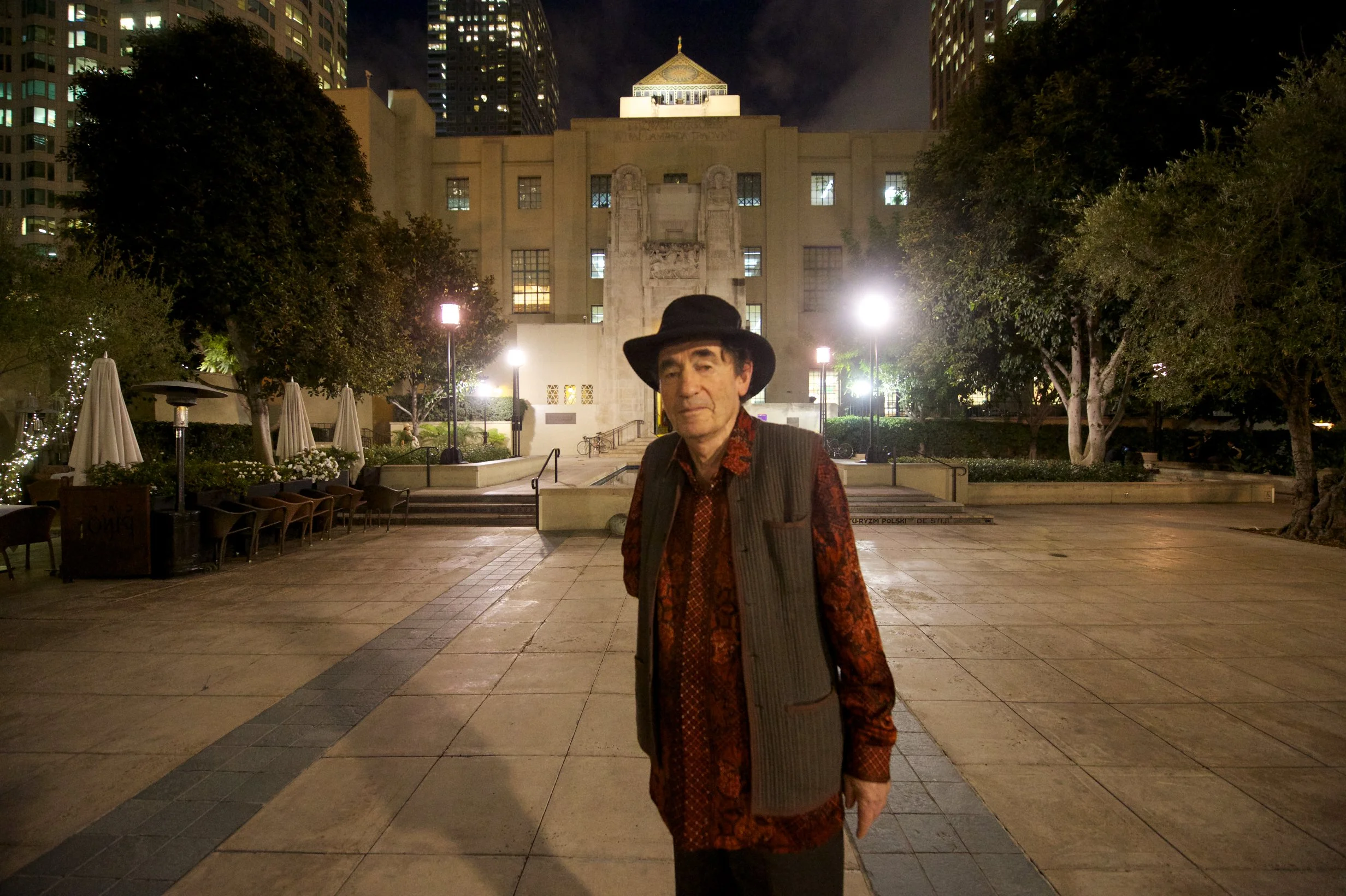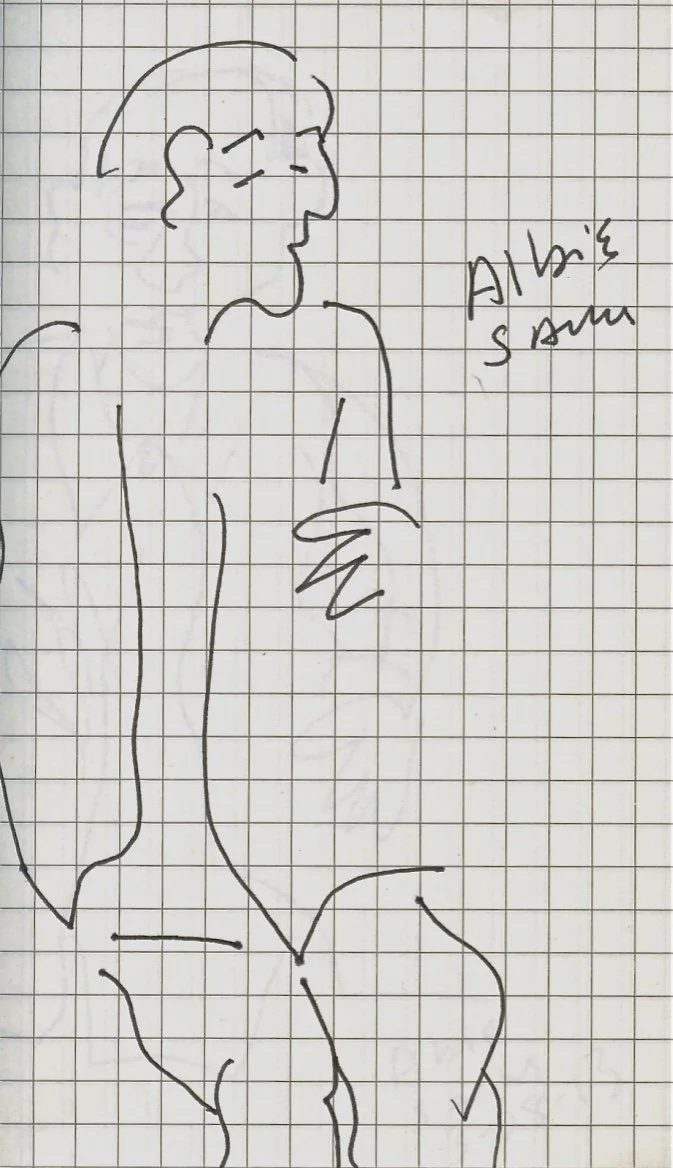What a Freedom Fighter Looks Like
Justice Albie Sachs, a veteran of South Africa’s struggle against apartheid, perches on a table in the lecture hall in the law school at USC. He’s a thin handsome man with an expressive lined face and drooping eyes, wearing a patterned black and white silk long-sleeved shirt. The right sleeve dangles empty. He begins his tale at the moment when he awoke in a hospital bed, his eyes bandaged.
This is how he described that moment in his memoir, The Soft Vengeance of a Freedom Fighter:“What happened?" and a woman's voice said, "It was a car bomb," and I collapsed into darkness again, but with a sense of euphoria. I'd survived. For, I don't know how many decades, every single day in the freedom struggle, wondering, "If they come for me today, if they come for me tonight, if they come for me tomorrow morning, will I be brave? Will I survive?" They'd come for me and I'd got through. I'd got through. I just felt fantastic. Then darkness, quiet, nothing.
Sachs had survived an assassination attempt by his own government. He recalls singing to himself as he lay there. He learned the song from Paul Robeson, his hero. He invites the audience to join him in song, singing “It’s Me Alone…” but no one in the room takes him up on it. (Perhaps lawyers and law students are not big on singing.) But Albie Sachs sings anyway. He is a liberated guy, a 76 year old with a wife in her forties and a five year-old son (with two grown sons by his first marriage.)He remembers, in those long days in the hospital, how someone sent him a note, promising to avenge the bombing. He recalls his sense of horror and alarm at the prospect. “If we get democracy, rule of law in South Africa,” he said at the time, “that will be my vengeance.”
This is what he calls “soft vengeance,” this process of reconciliation, of perpetrators “turning knowledge into acknowledgement.” It’s the denial in a society, he says, that is corrosive, oppressive. Listening to Albie Sachs, I recall a visit to ALOUD several years ago by Pumla Gobodo-Madikizela, the only psychologist on South Africa’s Truth Commission. Pumla described the Truth Commission as “…a mode of accountability that focused not on the retribution of punishment, but the restoration of the dignity of both victims and perpetrators.” And forgiveness did not come cheap in post-apartheid South Africa. Apology from perpetrators was a serious business, a “cleansing process”: The doer of evil deeds acknowledged the crime, expressed remorse, made a public apology. The public nature of the process was essential. In a country where everything had been kept secret for so long, people were able to hear the truth about their past.
Albie Sachs describes the notion of “restorative justice” as “discovering the humanity of the people who harmed you, the people who did terrible things to you.” How, I wonder, would it help our country to get past the oppression of denial, if we were to hold a Truth and Reconciliation Commission now-- after centuries of slavery and racism?“You would be driving, and you would hear the voice of a victim who was tortured, their voice in your own car, in that small space. You hear somebody talking about what happened to them and breaking down on the stage of the Truth Commission, and you are present with them as they break down. You hear their voice. You hear their pain. You can’t escape it,” Gobodo-Madikizela told us.Albie Sachs is an exuberant man. When he speaks, he gestures emphatically with his left hand, and what’s left of his right arm, the one blown off in the car bomb, gestures as well. He's all there. Completely there. The empty silk sleeve ripples in response to his thoughts. When he woke up in that hospital room, he tells the hushed audience, he realized he’d “only lost an arm.” He felt, he said, “utter joy.” He felt “an utter conviction—that I would get better, that the country would get better.”
drawing: L. Steinman

